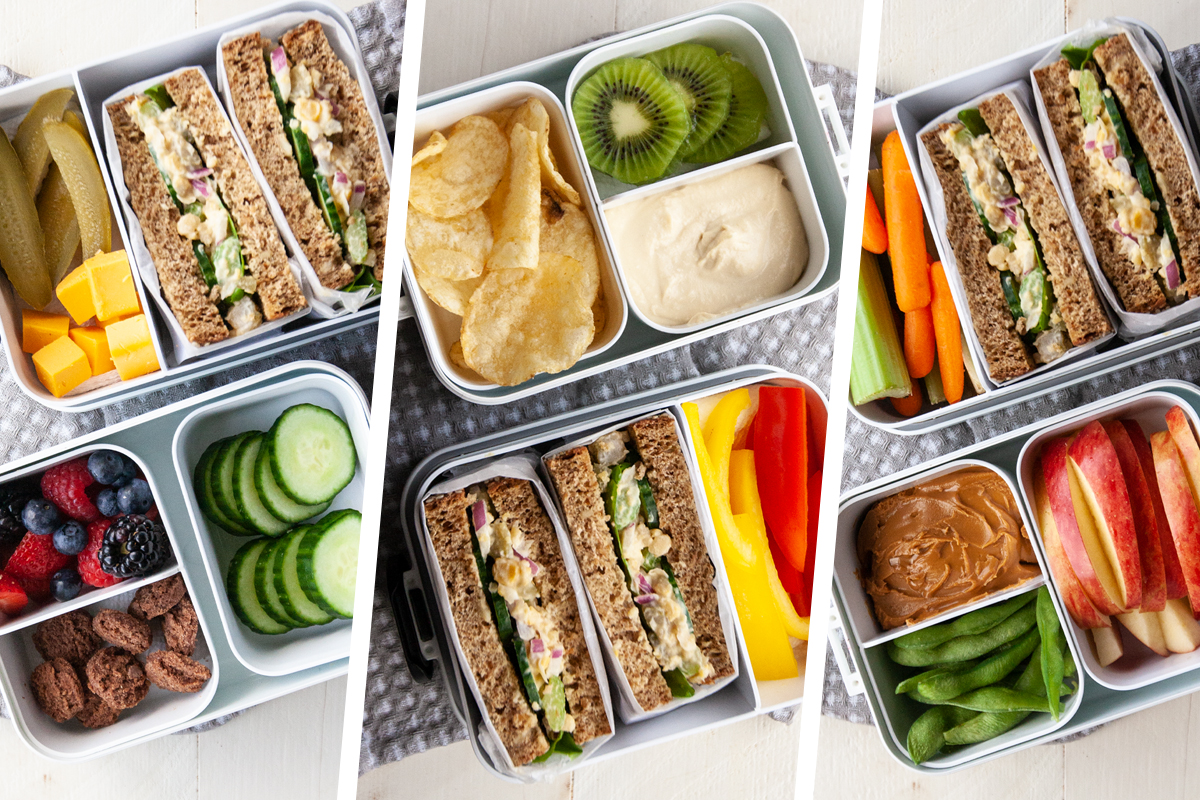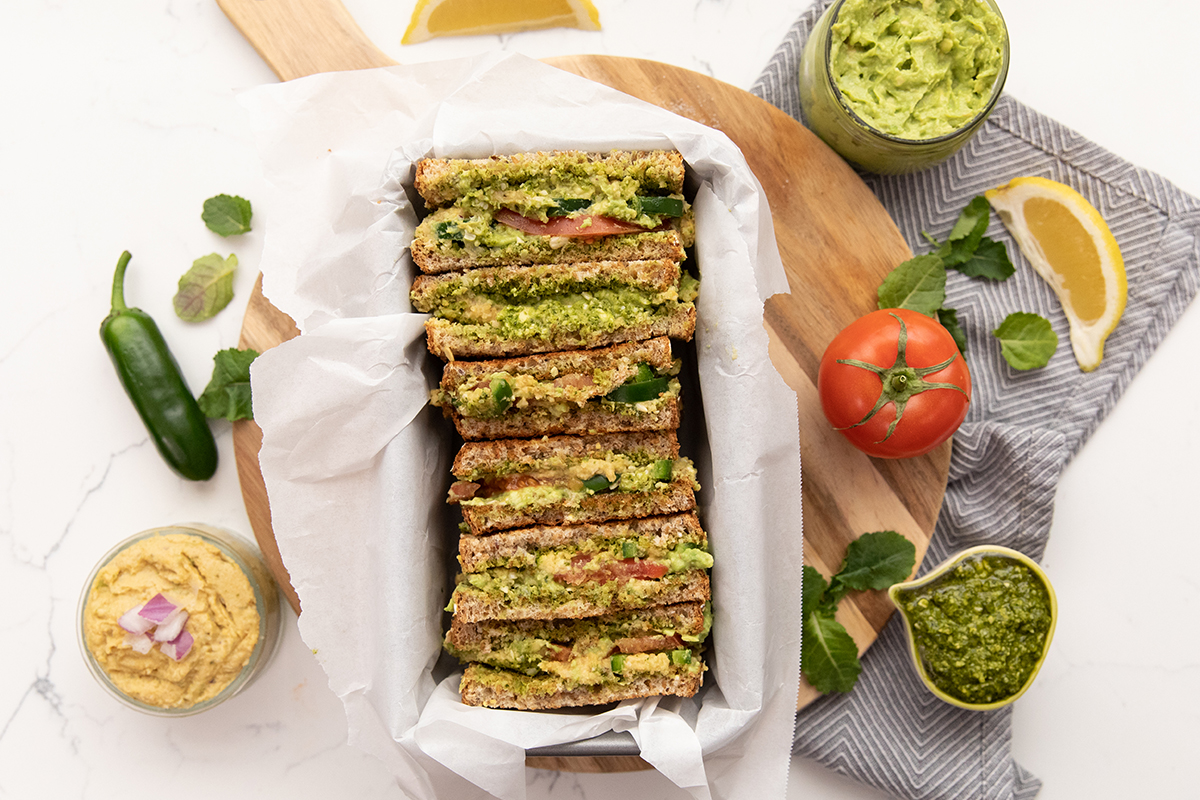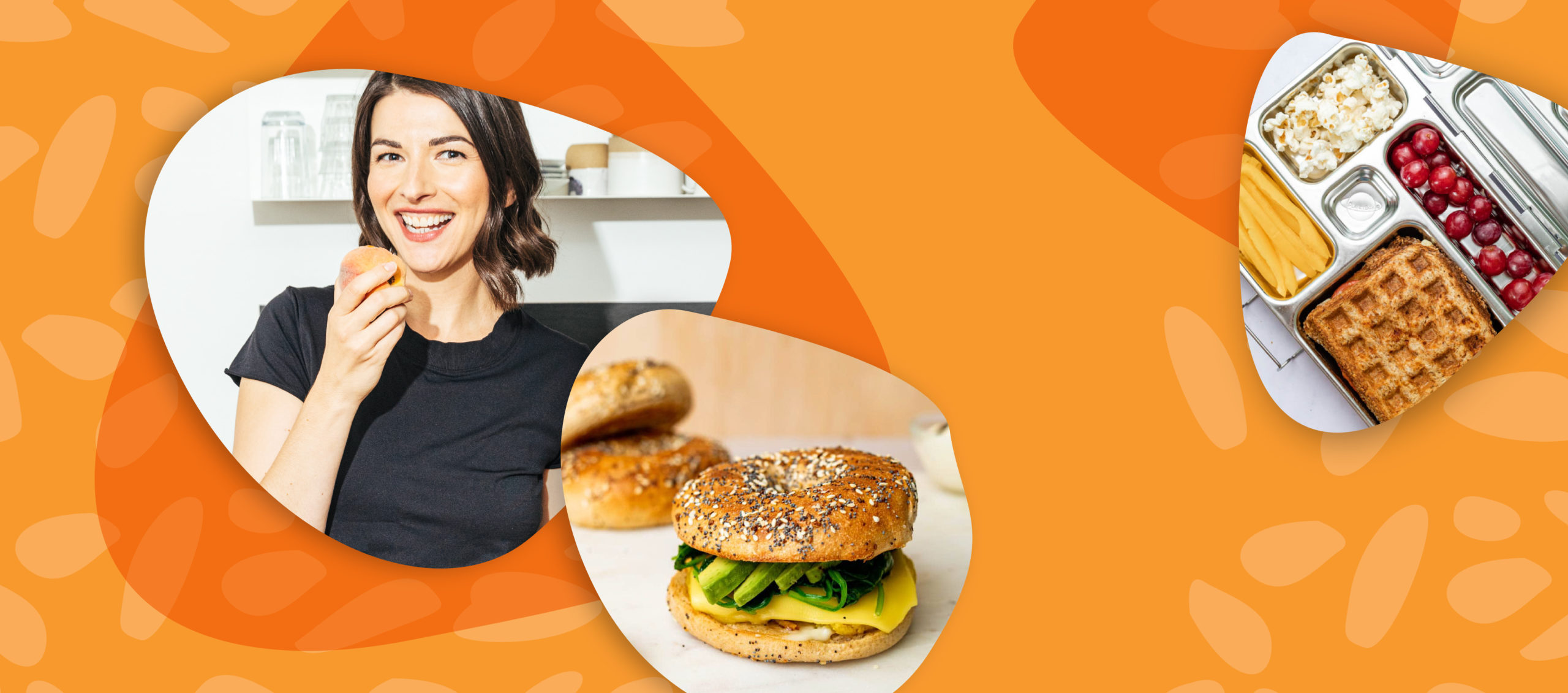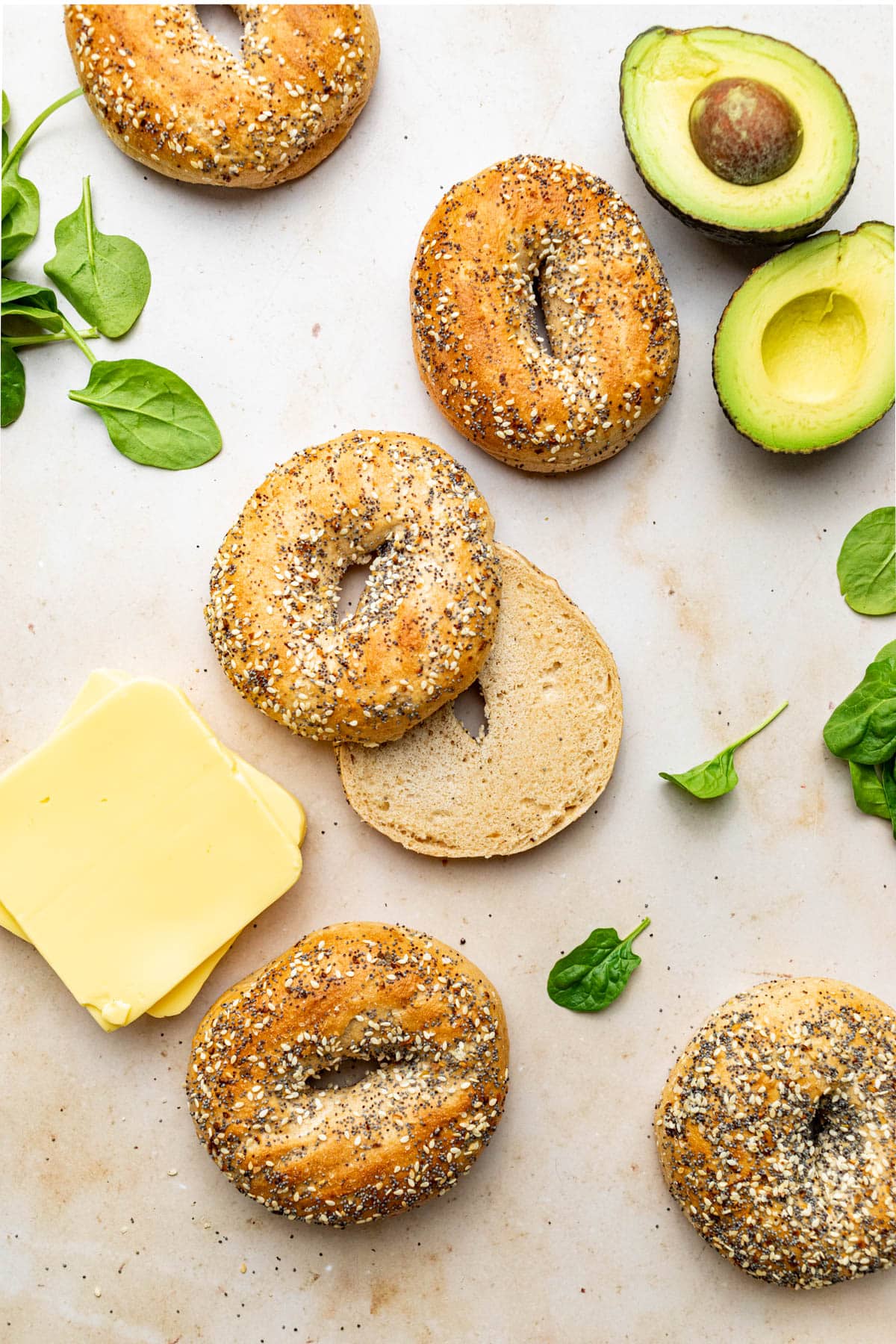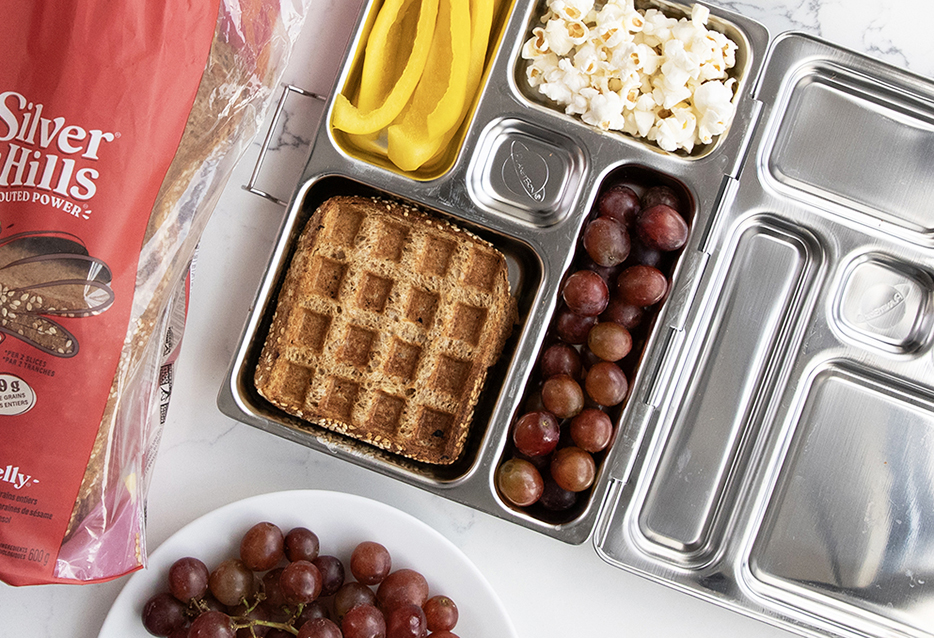Article Nutrition for Sleep: How Food Can Help You Rest Better
An Evidence-Based Guide to the Connection Between Nutrition and Quality Sleep
February 27, 2024

This article on nutrition for sleep was crafted in collaboration with Desiree Nielsen, RD
As Silver Hills Bakery’s favourite registered dietitian and regular content contributor,
we are grateful for Desiree’s evidence-based nutrition research support.
Reams of research show sleep is essential for health and wellbeing.1 But sleep quality is a complex puzzle. And when everything from your day’s physical activity2 to your bedtime routine can influence your night’s rest, figuring out how food can help you sleep better is no small riddle.
How diet impacts sleep is an exciting topic in nutrition science. And much of what we’ve learned about the connection between food and sleep so far calls for further study. But emerging research holds promise of someday revealing the secrets of nutrition’s sway on quality shuteye.
Sleep Matters.
Nutrition is One of Many Factors.
Regularly getting 7 – 9 hours of quality sleep supports cognitive performance,3 physical and mental health,4 and safety.5 And the opposite is true when you don’t get enough.
Nutrition can help, but there’s no one magic food to guarantee a good night’s rest. Numerous diet variables factor in—not just what you eat, but when you eat relative to bedtime6—can influence how well you sleep.
And that’s in addition to non-nutrition influences, like sleep hygiene (your bedtime routine), activity, stress, climate, lifestyle factors (shift work or parenting), and even exposure to blue light from screens.
Keep reading to learn more about evidence-based food choices that support healthy sleep!
How (Predominantly) Plant-Based Whole Food Diets Support Quality Sleep
Whether you’re vegan, flexitarian, or follow the Mediterranean diet, the science is clear on one thing—dietary patterns rich in plant-based foods are the key to health.
When you choose fibre- and vitamin-rich veggies, fruits, and whole grains as your primary fuel, get protein and healthy fats from legumes and nuts, and use plenty of olive oil, you reduce your risk of heart disease, stroke, colon cancers, and type 2 diabetes.7
And a 2024 systematic review of Mediterranean-type diets showed a significant association between a whole food, predominantly plant-based diet and quality sleep,8 too.
Mighty Macronutrients Make a Difference:
How Carbohydrates, Protein, And Healthy Fats Can Help You Sleep Better
Although scientists are still studying how carbohydrates, protein, and healthy fats work together to improve sleep, research shows all three macronutrients play a role in how well you sleep.
Quality Carbohydrates + Higher Fibre = Quality Sleep
The higher quality the carbohydrates you eat, the better you sleep!
Diets that include foods rich in fibre and lower on the glycemic index—like sprouted whole grains—have been linked with better sleep quality.9
Flip that around, and the same research shows more sleep complaints for eating patterns that are high in added sugars, starch and refined grains.
Pack in Protein at Dinner to Sleep Through the Night
When your evening meal pairs quality, high fibre carbohydrates with protein, sleep gets even better. When up to one third of your meal is protein, studies suggest this leads to fewer awakenings during the night, so you’re more likely to sleep through until morning.9
Healthy Fats Support Healthy Sleep
We already know getting omega-3s and omega-6s from plant-based sources like nuts, avocado, and olive oil is good for your heart. But did you know these healthy fats can also help you sleep?
Omega-3 and -6 fatty acids may influence the regulation of serotonin.10 This essential neurotransmitter does more than support mood and mental health—serotonin is also the precursor to melatonin, the hormone that regulates your sleep-wake cycle.
While individual nutrition needs vary, and factors like meal timing also matter, the research is clear—quality carbohydrates, protein, and healthy fats work together to help you sleep!
(As if you needed another reason to make yourself a high fibre, high protein, avocado-stuffed Vegan Tunacado Sandwich on sprouted whole grain bread for dinner!)
Nutrition for Sleep:
The Role of Vitamins and Minerals
Carbs, protein, and healthy fats may get top billing, but micronutrients also have a role to play. Although it’s harder to show the direct impact vitamins and minerals have on sleep, two candidates are worth covering: Magnesium and vitamin D.
Magnesium
Both natural wellness anecdotes and observational studies associate magnesium with sleep health. Magnesium helps stimulate receptors in your brain for GABA (gamma-aminobutyric acid), another neurotransmitter known for its calming effect.11
But while bedtime magnesium devotees believe it helps them sleep better, there isn’t enough human clinical evidence yet to show it’s effective in improving sleep outcomes.12
Don’t worry. When or whether future research proves or disproves a connection between magnesium and sleep, it does plenty of other nifty things in your body to support good health.
Vitamin D
Almost one in ten Canadians are vitamin D deficient, and over a quarter have inadequate levels of this important micronutrient.13
In addition to supporting calcium absorption, bone strength, and immune function, a growing body of research suggests vitamin D plays a role in healthy sleep. Vitamin D deficiency is associated with a higher risk of sleep disorders, poor sleep quality, and short sleep duration.14
Although there are few plant-based foods naturally rich in vitamin D, you can get what you need by including fortified non-dairy milks and yogurts in your routine—especially in the winter months when sunshine is scarce.
Foods with Potential (and Foods to Avoid) to Help You Sleep Better
While there is no one magic food that can make you wake up rested and ready, research suggests some foods may help you sleep—and science confirms two substances you want to avoid before bed.
To Seek: Tart Cherry Juice and Kiwis
There’s promising preliminary evidence that tart cherry juice and kiwifruit could have a positive impact on sleep.
Rich in antioxidant polyphenols and containing tiny amounts of naturally occurring melatonin, studies showed drinking tart cherry juice daily improved sleep quality.15, 16
(But it’s probably not the melatonin—research suggests it’s more likely to be the anti-inflammatory nature of polyphenols17 at work).
And placebo-controlled studies showed eating just two kiwifruit after the evening meal or an hour before bed had a positive impact on sleep.18, 19
As with tart cherry juice, kiwifruit contains a small amount of naturally occurring melatonin, but further research is needed to understand why kiwifruit supports sleep.
To Skip: Caffeine and Alcohol
The science is clear—both caffeine20 and alcohol21 can keep you from getting the quality sleep you need.
If you struggle to fall asleep (or stay asleep) and caffeinated tea or coffee are part of your routine, switch to herbal tea or decaf after noon.
And if you wrestle with poor quality sleep and adult beverages are a choice for you, celebrate with a sophisticated mocktail, or toast with the booming selection of zero proof spirits and alcohol-free options instead.
If this evidence-based guide to Nutrition for Sleep helped you, there’s more wholesome content to explore! Scroll down to subscribe to Silver Hills Bakery emails to get articles, healthy plant-based recipes, and subscriber-exclusive content delivered fresh to your inbox.
And you can invite new ideas to your social feed when you like Silver Hills Sprouted Bakery on Facebook, find us on Pinterest, or follow us @silverhillsbakery on Instagram, too!
